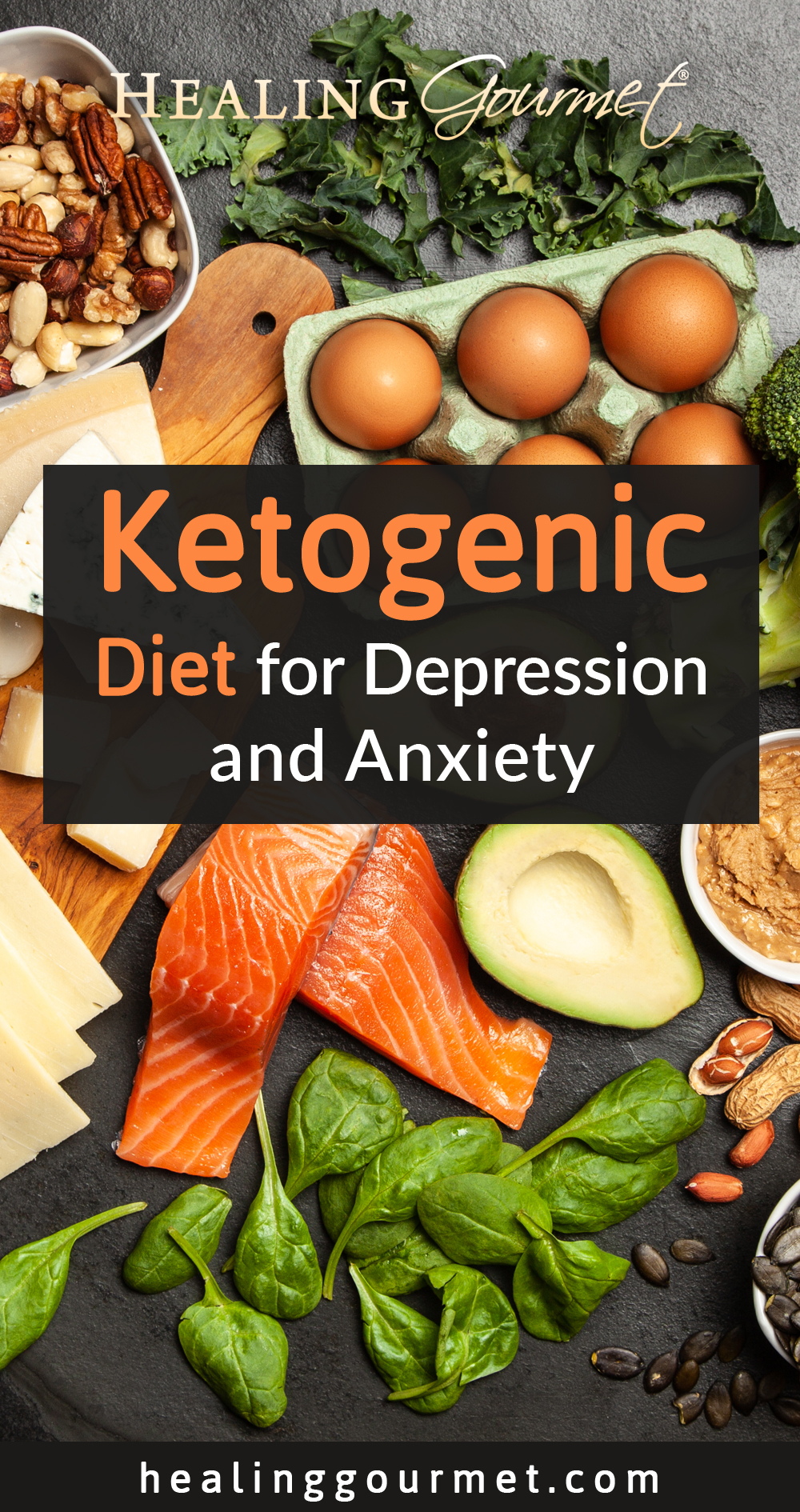Can a Keto Diet Ease Depression
You already know that the foods you eat can impact your physical health. But you might not realize the profound impact your food choices can have on your mood, emotions and mental health.
Of course, we’ve all experienced the feeling of being “hangry” (so darn hungry that we become short and ill-tempered). Conversely, most of us can relate to feeling euphoric during and after a delicious or long-awaited meal.
In today’s article, you’ll discover:
- The “chemical imbalance” myth of depression
- The link between inflammation and mood; and
- The promising research linking the keto diet to a sunnier disposition
Depression is Not a Chemical Imbalance
You’ve no doubt seen pharmaceutical commercials, peddling pills that promise to straighten out the “chemical imbalance” that’s making you blue.
Selling antidepressant drugs based on the “chemical imbalance theory” has certainly boosted Big Pharma’s profits. In fact, antidepressants are a $12 billion dollar annual market in the U.S. alone! But research shows that depression is actually not caused by a mythical chemical imbalance.
Consider these facts:
- Simply reducing levels of norepinephrine, serotonin and dopamine does not produce depression in humans.1
- While some depressed patients do have low levels of serotonin and norepinephrine, the majority of depressed patients do not.2
- Some depressed patients have very high levels of serotonin and norepinephrine (while others with no history of depression have low levels).3
- Reviews of studies show no link between depression and “chemical imbalances” in the brain.4,5
So if depression is not the result of a chemical imbalance, what is it?
Depression as a Symptom, Not a Disease
Recent research on depression points to a theory called The Immune-Cytokine Model of Depression (ICMD). In this model, depression is not considered a disease, but rather a symptom of inflammation and immune system activation.6
In an inflammatory state, tiny inflammatory chemicals called cytokines are produced, notably including interferon (IFN-g), tumor necrosis factor (TNF-a) and interleukins (IL-1) and (IL-10).
Nearly 40 years ago, scientists found that cytokines are capable of producing a wide variety of psychiatric and neurological symptoms – the very same symptoms that are characteristic of “depression”!7,8
Let’s take a look at the research between inflammation and depression:
- Depressed patients have statistically higher levels of IL-6 and TNF-a.9
- Higher inflammation (as measured by C-reactive protein) is an independent risk factor for major depression in women.10
- When inflammatory endotoxins are given to healthy patients, they display symptoms of depression.11
- Twenty-five percent of patients who take Interferon (an inflammatory medication used to treat hepatitis C) develop major depression.12
- When depression is diagnosed as “in remission”, blood tests often show a concurrent drop in inflammatory markers.13
But what is the root cause of the inflammation that can affect our brain in the first place?
Diet and Depression: The Inflammation Connection
As you know, what you eat can have a big impact on your levels of inflammation.
In fact, we’ve long known that healthy fats – especially the vital omega-3’s in wild seafood, conjugated linoleic acid (CLA) in grass-fed meats, and monounsaturated fats in olives, olive oil, avocados and pastured lard (yes, this is a superb source of MUFAs) – are important anti-inflammatory foods.14,15,16
Of course, science has also shown that unhealthy foods like hydrogenated “trans” fats, seed and vegetable oils, and sugar can dramatically increase levels of inflammation and set the stage for chronic diseases.17
And when it comes to sugar, the link between consuming the sweet stuff and suffering from a depressed mood – is becoming more and more clear.
In fact, a study published in the Journal of Affective Disorders, found that diabetics with poor glycemic control experienced more severe depressive symptoms than those with better control of blood sugar.18 Another study found that drugs which help to stabilize blood sugar also function as anti-depressants.19
And research published in Scientific Reports found that men who ate 67 grams of sugar or more per day were 23% more likely to have depression after 5 years. Men who kept their daily sugar to 40 grams or less had much lower risk of depression.20
Considering the connections between sugar and chronic inflammation, it is no surprise that a ketogenic diet could play a therapeutic role to ease the symptoms of depression.
How the Keto Diet Can Ease Depression
Ketogenic diets have been used for the last 100 years to treat stubborn neurological conditions, like epilepsy. In recent years, it has been used with success to treat Parkinson’s Disease, traumatic brain injury, Alzheimer’s and more.21,22
In fact, many proponents of the keto diet believe that its sugar-slashing, inflammation-reducing benefits are at the core of its ability to heal the brain. Dr. Georgia Ede, a Harvard University-trained psychiatrist who studies the relationship between mental health and nutrition, says:
“…when refined carbs and sugar serve as the brain’s primary food source, the neural pathways are overwhelmed with free radicals and glucose, depleting our natural internal antioxidants and leading to excess oxidation and inflammation. When the brain draws its energy from ketones, fewer free radicals are produced, allowing our natural antioxidants to easily neutralize them without becoming depleted. Mitochondria, the “engines” of cells, function more effectively, and neurotransmitters’ journeys across synapses may be eased.”
In addition, the keto diet appears to help the body produce optimal amounts of GABA, the brain’s main inhibitory neurotransmitter, which has also been shown to help alleviate anxiety and depression.
Less Sugar, More Happy?
Depression is a multifaceted condition. And of course, there are many circumstances and life changes that can cause us to feel blue. But research clearly shows that putting a damper on inflammation is a vital step in alleviating this mood disorder.
By choosing a low-carbohydrate or ketogenic diet, you naturally eliminate the blood sugar spikes that promote systemic inflammation. And by opting for Mother Nature’s most powerful anti-inflammatory foods – including wild fish, game, and pastured meats – we provide our bodies and brains with the ancestral building blocks for a happy mood and a healthy, disease-free body.





Leave a Reply